‘IFMIF-DONES will be a scientific and technological driving force with high economic impact’
Rogelio Velasco, Regional Minister for Economy Transformation, Industry, Knowledge and Universities of the Junta de Andalucía

Rogelio Velasco is the Regional Minister for Economy Transformation, Industry, Knowledge and Universities of the Junta de Andalucía since 2019. Throughout his career, he has successfully combined his international vocation with a deep knowledge and care for Andalucía. Rogelio Velasco obtained his Full undergraduate degree in Economics at the University of Seville, his PhD in the same field at the University of Malaga and is Full Professor at the University of Granada, currently on a leave of absence. Velasco has also worked in foreign scientific institutions: Associate Research Fellow at the University of Berkeley for three years, Professor at the Stern School of Business at New York University, and consultant at the Inter-American Development Bank and the World Bank in Washington DC. During his career Velasco has combined research and work in the private sector, holding several positions in Telefonica, as Director of Finance, Chief Officer of Venture Capital Investments, and Head of the Corporate Content Unit. Before joining the Regional Government of Andalucía (Junta de Andalucía), Velasco was Professor on Entrepreneurship at the IE Business School.
-The Consortium between the Junta de Andalucía and the Spanish Central Government to support the candidacy for IFMIF-DONES was formally established last June 9. What is the roadmap of the Consortium? Which are the priority activities?
-The main objective of the Consortium is to contribute to the European Fusion Programme through the design, construction, equipment, and exploitation of the IFMIF-DONES accelerator promoting and managing scientific, economic, technical, and administrative cooperation between both public administrations.
The operation of the Consortium is based on three phases. An initial phase, or candidacy phase, supported by the establishment of the consortium and which will be extended for a period between one and four years. If the candidacy succeeds, the second phase, or construction phase of the facility, will be initiated, with an approximate duration of 10 years. Finally, the final phase, or scientific-technological exploitation phase of the infrastructure, will last approximately 20 years.
We are currently at the candidacy phase. The priority now is to conduct the necessary activities to promote the operation of this international project and strengthen Granada’s candidacy to host this important infrastructure.
To do so, we are arranging national and international meetings, participating in conferences and other events, disseminating the great value of IFMIF-DONES for Andalusian and national research. By doing so, we are contributing to the creation of an essential working environment for the success of Granada’s candidacy.
We are also coordinating activities related to the IFMIF-DONES scientific infrastructure that are being developed in other Spanish and international organisms and institutions, including projects such as DONES-PreP, WPENS, DONES-PRIME and DONES-UGR, currently being implemented, as well as future projects.
Other activities are also being implemented to ensure a quick start of the construction phase, with special focus on the intensive use of the Structural Funds that will be used by the Spanish candidacy.
-IFMIF-DONES is an example of institutional unity, with the administration and economic and social agents working side by side. From now on, how will this work be managed? Is the inclusion in the Consortium of other institutions expected?
-The Consortium was established by the Spanish Central Government, through the Ministry of Science and Innovation, and the Junta de Andalucía (Regional Government of Andalucía), through the Regional Ministry for Economy Transformation, Industry, Knowledge and Universities.
However, the Consortium does not prevent other Andalusian, national, European or international entities from implementing significant activities related to the IFMIF-DONES project. Among these organisations the role of the University of Granada and CIEMAT should particularly be noted.
The Consortium has the objective to coordinate the activities related to the IFMIF-DONES infrastructure developed by other Andalusia, national, European, and international organizations and institutions. This coordination will be managed establishing protocols and signing cooperation agreements that are deemed necessary.
–Besides the promotion of Granada’s candidacy to host IFMIF-DONES, which other areas related to R&D and to fusion will the Consortium focus on?
-IFMIF-DONES will be a scientific and technological facility at the disposal of the Andalusian, national, European, and international scientific and technological community within the framework of the European Fusion Programme. This facility will benefit from international cooperation and will be among the European cooperation initiatives in this field.
The Consortium’s Statutes, passed last June 9 upon the Signature of the Agreement, explicitly state the promotion and participation in R&D projects in the field of fusion and other related scientific and technology areas, especially those included in the European fusion roadmap.
In this sense, the Consortium will have the capacity to participate in competitive national and international calls to obtain additional funding for specific activities in the aforementioned fields.
–The economic Andalusian scenario drastically changed as a result of the COVID-19 pandemic. Although the situation seems to be improving, the economic crisis has not been overcome. Can this affect in any way the future of the IFMIF-DONES project?
-IFMIF-DONES is a unique opportunity for Andalucía and Spain. The Junta de Andalucía considers this a strategic project and an opportunity to transform the region into a national and international example in knowledge and research, especially concerning clean and unlimited sources of energy. For this reason, it has supported Granada’s candidacy from the beginning of the term in office. In fact, in March 2019 the Regional Ministry decided to participate in this Consortium with the Central Government, changing its participation from 33 % to 50 %.
The pandemic has shown us the need to increase investment in research. This scientific infrastructure will become one of the most important in the European Fusion Program, with a large impact on research, science, technology transfer to companies in Andalucía but also in Spain. IFMIF-DONES will be a scientific and technological driving force with high economic impact.
Granada’s candidacy is strong: it has the endorsement of the Nuclear Safety Council, it is close to ITER in France, and it is backed by Andalusian and Spanish scientific excellence.
It is a priority for any region to promote projects that generate wealth and employment, guaranteeing their solvency in time to demonstrate the multiplier effect of the required investment. IFMIF-DONES is, with no doubt, an enabling infrastructure in this regard. As an example of its scope, we calculate that during its operation 1600 job opportunities for high qualifications can be created.
-Is the funding of the project guaranteed beyond the current framework that ends in 2023?
-The estimated total cost of the project is €710 million, €150 million for the design, €40 million for preparation, €420 for construction and €50 million per year upon its operation.
The initial phase has own funds as well as European funds through the Operational Programme Andalucía ERDF 2014-2020. For future phases, as the construction of the infrastructure, an initial funding using structural funds and the next ERDF 2021-2027 programme is also expected, in addition to funds from other international partners.
In any case, as the candidacy, construction, and scientific and technical exploitation phases of the facility take place, the budget plan related to the project will be updated, accounting for its needs, the capacity of the Consortium to obtain funds or international agreements reached, among other aspects.
–Are there any delays expected in the budget foreseen for next year?
-We do not expect any delays related to the funding. This initiative is top priority for the Junta de Andalucía, and we do not expect any changes and wish to maintain the Consortium’s roadmap.
-IFMIF-DONES will be a disruptive and transformative project. What will its impact be in the regional economy?
-Back in 2019, the University of Granada conducted a preliminary study on the socioeconomic impact related to the implementation of the IFMIF-DONES project in Granada. It highlighted the strong impact on the economy as a consequence of the investment made in its promotion, construction, operation and dismantling, which will increase the direct demand of goods and services, indirect and induced demand in most sectors, resulting in an increase of the production, employment, and GVA.
Such preliminary studies revealed that the goods and services production would increase in €6 billion, 79 % of the total generated by the project. This quantity would increase the Gross Value Added in €2.7 billion.
According to this report, Andalucía would be the Spanish region to benefit the most from IFMIF-DONES, increasing its production in over €4 billion, creating 1000 jobs and increasing GVA by €1.8 billion. The previous experience of local impact caused by projects such as CERN, ITER or ESA support such estimate.
–Besides the creation of employment and attraction of companies and talent, IFMIF-DONES will place Granada and Andalucía on the map of nuclear fusion and scientific research. What measures should be implemented by the administration to promote and strengthen this new industry in the province and guarantee its viability beyond the IFMIF-DONES project?
-In addition to providing an amicable environment for parallel investment that the operation of a facility such as IFMIF-DONES will entail, we have managed to build an innovation and research environment through actions such as administrative simplification that will respond to the demand of highly qualified staff. The role of universities is essential in the preparation and operation of this type of project.
The Administration should help universities and their research groups to position themselves at the forefront of specialization in this field. To this effect, we must maintain and improve international talent scouting in different fields of science and technology with programs such as Emergia.
In addition, we have to continue implementing actions to promote Industry 4.0 and 5.0, technology transfer from our universities and research centres to companies.
Particularly in Granada, the University of Granada is having an active role concerning Artificial Intelligence, becoming an active participant in the AI Lab initiative. AI Lab is a public and private initiative (promoted by Indra and Google) with the aim to create a business ecosystem where Artificial Intelligence is used to provide technological services for digital transformation in different sectors.
Such highly specialised ecosystems are key for Andalucía to become leader in different fields of science and technology. Granada is proving its significant international potential.

